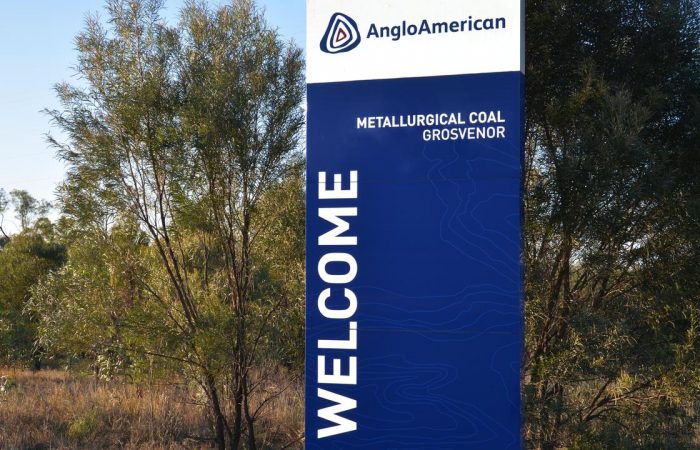
The INTRODUCTION of INDUSTRIAL MANSLAUGHTER has CAUSED an UNINTENDED but PREDICTED RESPONSE FROM MINING COMPANIES and ALL MANAGENT from the SITE SENIOR EXECUTIVE through to ERZ CONTROLLERS to REFUSE to provide STATEMENTS or TESTIFY at the GROSVENOR MINISTERIAL INQUIRY
Grosvenor Mine Inquiry Submission INDUSTRIAL MANSLAUGHTTER LEGISLATION Unintended Consequences
Mineral and Energy Resources and Other Legislation Amendment Bill 2020
Above is my Submission about how the Introduction of Industrial Manslaughter in the Mining has had the Unintended by predicted outcomes the Mining Companies and the Queensland Law Society Predicted.
GROSVENOR INQUIRY SUBMISSION
UNINTENDED CONSEQUENCES INDUSTRIAL MANSLAUGHTER LEGISLATION INTRODUCTION
The INTRODUCTION of INDUSTRIAL MANSLAUGHTER has CAUSED an UNINTENDED but PREDICTED RESPONSE FROM MINING COMPANIES and ALL MANAGENT from the SITE SENIOR EXECUTIVE through to ERZ CONTROLLERS to REFUSE to provide STATEMENTS or TESTIFY at the GROSVENOR MINISTERIAL INQUIRY.
RECOMMENDATION
Either
- Repeal the Industrial Manslaughter Provisions within the Qld Mining Safety and Health Acts
- Amend the Legislation to remove the ability for a witness to self-incriminate
REASONS
Submissions made by The Most Senior Mine Site Management to the Parliamentary Committee that Recommended the Bill, stated that would be exactly what happened.
The formal submitted predictions made by a member of Peabody Coal Management, and BMA and BMC Site Senior Executives that Management would likely.
- Result in companies and individuals being more defensive and the over-use of legal professional privilege.
- Adopt an approach of self-preservation in the face of the law, minimising documentation so that they may stand a better chance in court in the event of a fatality?
* This will be a distinct disadvantage in driving an improved safety culture across the industry.
* Fear drives the wrong safety outcomes. It has to be safe to speak up and call out hazards.
The * Parliamentary Committee Report that supported its introduction stated.
The committee is satisfied that the industrial manslaughter offence provisions in this Bill require proof beyond reasonable doubt and does not change existing provisions concerning a person’s obligations to answer questions about incidents, and matters concerning privilege against self-incrimination. As such the committee does not consider that there will now be a reluctance to share information.
*State Development, Natural Resources and Agricultural Industry Development Committee’s examination of the Mineral and Energy Resources and Other Legislation Amendment Bill 2020.
DEMONSTRATABLE OUTCOMES
- A DISTINCT DISADVANTAGE IN DRIVING AN IMPROVED SAFETY CULTURE ACROSS THE INDUSTRY
- NEGATIVE IMPACTS GROSVENOR MINISTERIAL BOARD OF INQUIRY
- The Grosvenor Ministerial Board of Inquiry is the first Inquiry, Warden Court Proceedings is the first and only that has not had Management testifying.
- It is the first Inquiry that has Management refusing to provide a statement or testify on the grounds of self-incrimination. This is stated in the refusal
- This makes it demonstrably harder for the Grosvenor Inquiry to ascertain the facts and circumstances and contributing factors surrounding the Event it was set up to Investigate; than any other Inquiry.
- It therefore stands to reason it will be less likely to make Recommendations to prevent a reoccurrence of a similar event than any other Inquiries or Royal Commissions
The Grosvenor Ministerial Board of Inquiry is the first Legal Proceedings since the Introduction of Industrial Manslaughter Laws in 2020.
The Methane Ignition and the resulting Permanently Disabling Burn Injuries to Five Mine Workers occurred is the reason the Inquiry was called.
It is contained in the same Legislation.
ALL PERSONS FROM GROSVENOR SITE SENIOR EXECUTIVE TO ERZ CONTROLLER HAS FORMALLY DECLINED TO PROVIDE A STATEMENT OR GIVE TESTIMONY.
The negative impact from this was noted by the Inquiry Chairperson in a media release dated the 11th of September 2020.
STATEMENT BY THE CHAIRPERSON – UPDATE TO PUBLIC HEARINGS SCHEDULE
It was expected that all of the evidence regarding the 27 methane exceedances and the serious accident relating to Grosvenor mine would be called in public hearings commencing 15 September 2020.
That is no longer possible.
An investigation by the Regulator into the serious accident has not concluded and consequently no assessment has been made by the Work Health and Safety Prosecutor of the potential for any charges to be laid.
Pursuant to s 216 (4) of the Coal Mining Safety and Health Act 1999 (“the Act”), many witnesses have informed the Board that they will refuse to answer questions that might tend to incriminate them.
These witnesses comprise obligation holders under the Act and persons who may fall within the broad terms of s 39 of the Act. Such persons may therefore be at risk of prosecution.
At this stage, it is problematic for these witnesses to answer questions at the Inquiry about the 27 methane exceedances and the serious accident because, depending on the Prosecutor’s assessment, any incriminating answers may subsequently be used in evidence against them.
It follows that the Board accepts that the current refusal to answer such questions is justified.
There can be no criticism of the position taken by these witnesses. Privilege against the risk of self-incrimination is a fundamental right each of us has.
However, the consequence is that the Board cannot, at this stage, meaningfully inquire into the 27 methane exceedances or the serious accident at Grosvenor mine.
The Terms of Reference require that the Board provides the Honourable the Minister Dr Anthony Lynham with a report, suitable for publication, about its findings and recommendations, by 30 November 2020.
The provision of a complete report by that date is now impossible. Consequently, the report will now be provided to the Minister, suitable for publication, in two parts.
https://coalminesinquiry.qld.gov.au/media-statement-4/
EXTENT OF RIGHT FOR REFUSAL TO ANSWER QUESTIONS
Would it extend to a fully fledged ROYAL COMMISSION called by the Queensland Parliament?
SUBMISSIONS
Submitters raised concerns that industrial manslaughter legislation is likely to result in companies and individuals being defensive and the overuse of legal professional privilege. It was suggested that records or documents created during an investigation and preparation of a report should not be admissible against any individual in relation to a fatality, noting that s 201 of the CMSHA provides such immunities in relation to records or documents created during the course of the investigation.
BMC and BMA Site Senior Executives submitted:
This will pose an ethical dilemma for SSEs across the industry – do we continue our proactive cultural pursuit of hazard reporting, knowing that we are eliminating fatalities in the industry, or do we adopt an approach of self-preservation in the face of the law, minimising documentation so that we may stand a better chance in court in the event of a fatality? Fear drives the wrong safety outcomes. It has to be safe to speak up and call out hazards.
Similarly, Mr John Anger argued: (Peabody North Goonyella)
Industrial manslaughter is likely to result in companies and individuals being more defensive and the over use of legal professional privilege. This will be a distinct disadvantage in driving an improved safety culture across the industry.
The committee is satisfied that the industrial manslaughter offence provisions in this Bill require proof beyond reasonable doubt and does not change existing provisions concerning a person’s obligations to answer questions about incidents, and matters concerning privilege against self-incrimination. As such the committee does not consider that there will now be a reluctance to share information.
The committee supports the proposed industrial manslaughter provisions to bring the conduct of senior officers and corporations clearly into focus in relation to safety in resources sector workplaces and to ensure that appropriate deterrence for non-compliance with safety and health requirements exists.
The Queensland government considers that the additional sanctions for the proposed industrial manslaughter provisions are necessary to ensure appropriate deterrence for non-compliance with safety and health requirements.
Submissions also noted that there was no evidence to suggest that there have been incidents where deaths have occurred that have been unable to be successfully prosecuted under the existing provisions. The Australian Institute of Health and Safety (AIHS) submitted:
The Bill Explanatory Notes state that ‘the current offences…are insufficient where actions or omissions involving criminal negligence…result in worker fatalities’. However, the absence of prosecutions in Queensland under the existing legislation (WHS Act), prior to the introduction of Industrial Manslaughter, do not suggest that the penalties were too low – they just were not being applied.
Submitters highlighted the lack of information demonstrating the need for industrial manslaughter laws. The QLS opposed the introduction of new criminal offences without persuasive evidence to demonstrate their need and evidence that existing laws are not capable of capturing the conduct which is the target of the offence:
The Queensland Law Society does not support the introduction of the industrial manslaughter offences into the resources safety acts. There are existing criminal offences in these acts which capture conduct, both acts and omissions that causes a fatality, as well as offences in the Criminal Code which do the same.
Similarly, the QLS noted that offences addressing fatalities in the resources sector already exist in the Resources Safety Acts and within the Criminal Code.
PAGE 19
Glencore submitted:
The Queensland Government has not provided any analysis of prosecutions that were not pursued under existing laws due to an identified gap, nor has it provided empirical data to demonstrate that the existing law of Queensland is inadequate or ineffective in securing safety outcomes at Queensland mines.
The QLS also raised concerns that the current framing of the management of ‘acceptable level of risk’ imposed on SSEs under the CMSHA and MQSHA, places onerous duties of care on SSEs which implies that, where a fatal incident occurs, there is an implied assumption that an acceptable level of risk was not achieved. This places a reverse onus of proof on the SSE
Mr Murphy from QLS outlined:
In its simplest, everyone is entitled to the presumption of innocence until otherwise proven. The onus is not specifically reversed in the draft bill—it is by implication—and that arises as a result of the duty being to be able to show that the risk has been at an acceptable level. If in fact the event that is giving rise to the prosecution is a fatality, the inherent outcome of that has to be that it was not an acceptable level, I would think, and that then implies that it is on the respondent or the defendant to the charge to prove that it was at an acceptable level rather than the prosecution proving it was not…107
Submitters also suggested that regulatory bodies need to be sufficiently resourced to engage with and, when necessary, investigate and prosecute operators. Mr Luke Murphy from the QLS argued:
We think that what is in the first place required is proper resourcing and funding of investigations and prosecutions and it is only in circumstances where there has been that proper resourcing and funding and where there is, once that has occurred, a failure to achieve the successful prosecutions under the existing offences that further offences should be looked at. In response to these concerns, DNRME advise:

